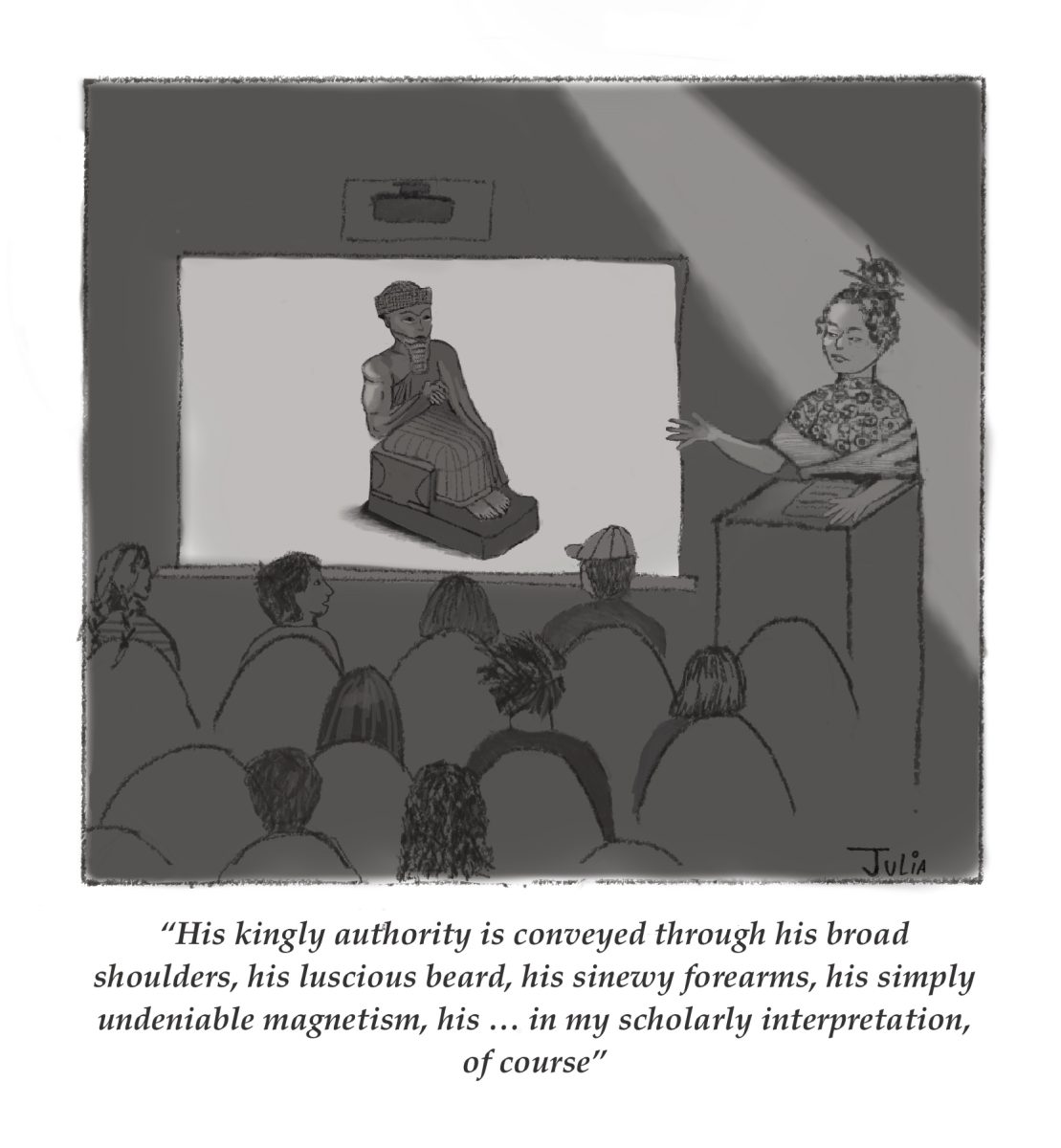Before reading onward, take a look through the “Williams Memes for Sun-Dappled Tweens” Facebook page. Or, for that matter, through “Classical Art Memes,” Dartmouth’s meme hub or any one of the growing multitude of Facebook meme pages targeting college-aged students. A trend emerges: the proliferation of memes which take depression and anxiety as their subjects.
Coincidentally, at the time of writing this piece, I had another tab open with an image of a captioned painting. In it a well-dressed gentleman reassures a sad noblewoman that she “is depressed, but will live.” “Yeah,” she replies, “but how much longer do I have to?”
These memes are funny. But more than that, they are profoundly relatable – what other explanation is there for their ubiquity? Their pleasant sense of humor and accessibility seems well and good. But of late, my laughs (or, more realistically, my slightly more forceful exhalations) have contained a certain uneasiness. What does this mean – and why am I not similarly bothered by the stand-up comedians who discuss much of the same content?
First, I invite you to consider that this op-ed should not be relegated to the realm of mountains and molehills. Consider the apprehension with which America faced the discovery that Russian-backed Facebook pages had a notable effect on our last election. When the health of our nation was concerned, we demanded action. We condemned the acts and the roboticism of Mark Zuckerberg, we held congressional hearings and some of us even deleted Facebook. We’ve grown nationally wary of the power and influence of internet memes, but we have not turned our focus inward with the same degree of intensity.
On the face of it, the normalization of mental health issues is beneficial for everyone. The fact that these memes address real issues signals that the community that creates and enjoys them is comfortable with the uncomfortable – is willing to talk and help. Not only that, but these memes actively encourage a discussion of one’s own struggles through combining humor with honesty; our laughter acts as a sweetener, rendering potentially difficult discussions more palatable.
Perhaps my sense of unease is related not to the service of normalization performed by these images, but rather to the medium itself. The popularity of any meme is dependent upon its relatability; memes are, by definition, the images and captions that summarize and report upon societal happenings. But when we laugh and scroll, I can’t help but think that we play into a certain role, that of faceless content consumers – a role which, by inundating us with the collective, threatens to diminish our own rich sense of individuality. This is not an issue when we are laughing at pictures of cats. But it is concerning when we deal with these more serious topics. I suspect we deaden our own ability for therapeutic self-analysis when we mindlessly consume such content. I wonder whether we – subconsciously or otherwise – increasingly accept the numbing reassurance of “relatability” as a substitute for seeking help.
This, then, is why I am unconcerned when watching stand-up comedians joke about their mental health issues. Stand-up comedy is profoundly individual, and its normalization of these issues privileges, rather than diminishes, the individual experience.
Now, you’d have to be a rather dull person to advocate for the downfall of these memes. They are, at least in terms of obviously tangible effects, a lesser issue than foreign political meddling. And they are, well, funny. So, I don’t advocate that we condemn these memes, or that we refuse to laugh. In fact, I’d be a hypocrite to even suggest it. Because I am going to continue to scroll and laugh and laugh and scroll. You will too. And, frankly, so will our generation, wondering all the while why we are feeling less and less like ourselves – why we are feeling continuously worse.
Mike Rury ’19 is from State College, Penn. He is an economics and English double major.




